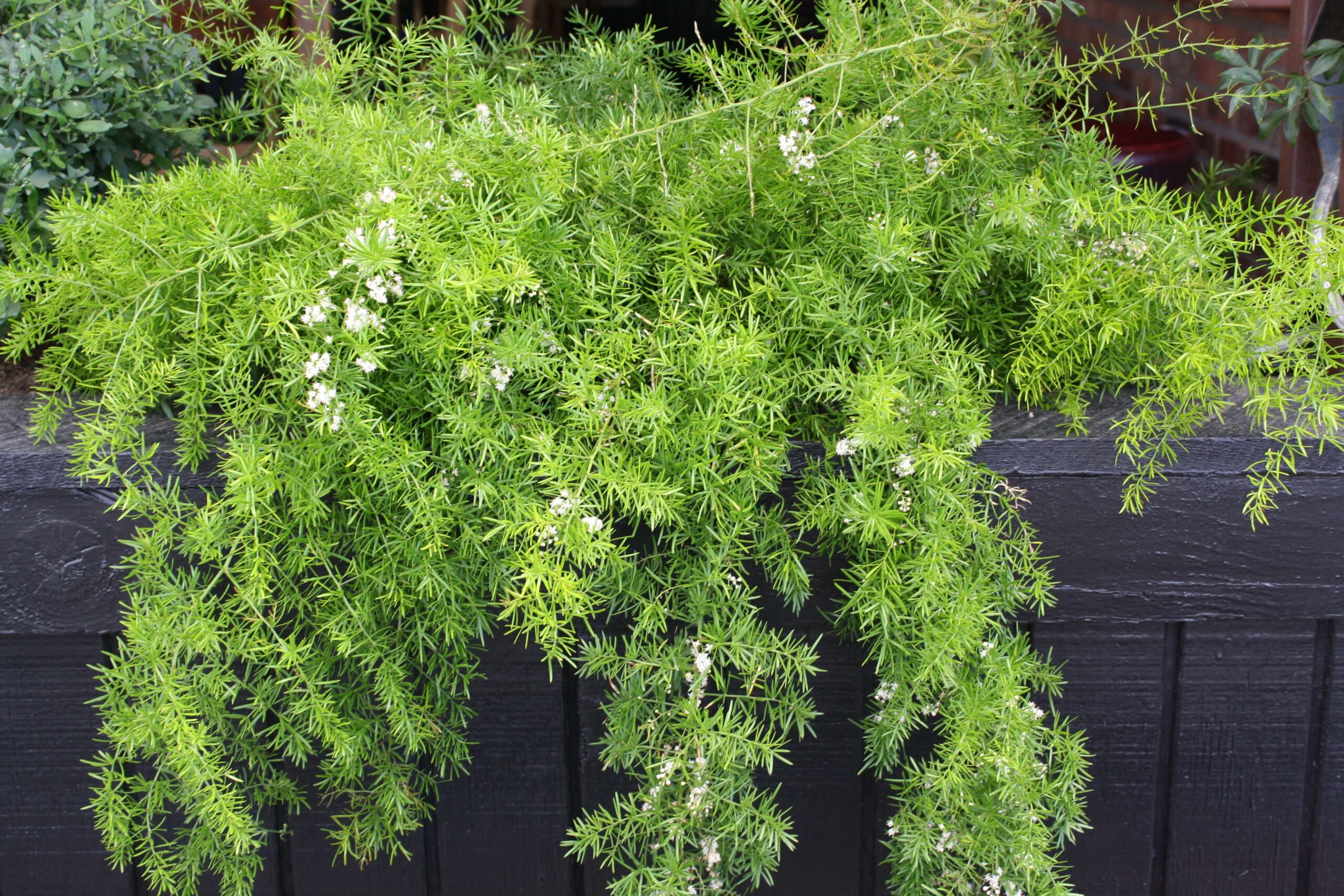DEPARTMENT OF BOTANY
MEDICINAL PLANTS
Asparagus racemosus Willd.
Asparagus racemosus, commonly known as Shatavari, is a perennial herb belonging to the family Liliaceae. It is native to India, Sri Lanka, and other parts of Southeast Asia and is highly valued in traditional Ayurvedic medicine for its adaptogenic, rejuvenating, and fertility-enhancing properties. The plant is famous for its ability to support women’s health but also offers numerous benefits for general wellness.
Botanical Details:
• Scientific Name: Asparagus racemosus Willd.
• Family: Liliaceae
• Genus: Asparagus
• Species: racemosus
Common Names:
• English: Shatavari, Wild Asparagus, Indian Asparagus
• Hindi: शतावरी (Shatavari)
• Tamil: சதாவரி (Sathavari)
• Malayalam: ശതാവരി (Shatavari)
Botanical Description:
o Asparagus racemosus is a climbing shrub that grows to about 1–2 meters (3–6 feet) in height. It has thin, spiny, green stems, which are zig-zag in appearance. These stems are actually modified branches that serve as the plant’s photosynthetic organs.
o The plant has needle-like leaves (called phylloclades) that are small and scale-like. The true leaves are reduced to small scales, and the plant appears to have thin, thread-like structures instead of broad leaves.
o The root system is fleshy and tubular, forming large tubers underground. These tubers are the part of the plant that is primarily used in herbal medicine for their beneficial properties.
Medicinal Uses:
1. Women’s Health:
o Fertility: Asparagus racemosus, or Shatavari, is one of the most well-known herbs for female reproductive health in Ayurveda. It is considered a tonic for the female reproductive system and is believed to improve fertility, regulate menstrual cycles, and support lactation.
o Pregnancy and Postpartum Care: Shatavari is often used to help women during pregnancy, postpartum recovery, and to enhance breast milk production (galactagogue). It helps balance hormones, making it useful for managing morning sickness and postpartum depression.
o Menstrual Health: Shatavari is used to treat menstrual irregularities, cramps, and PMS (premenstrual syndrome). It helps in balancing estrogen and can relieve discomfort caused by hormonal fluctuations.
2. General Health and Well-being:
o Adaptogen: Shatavari is considered an adaptogen, which means it helps the body adapt to stress and boosts the immune system. It is used to reduce the effects of stress and anxiety and improve energy levels and mental clarity.
o Digestive Health: It is beneficial for improving digestion and appetite. The roots are often used in treatments for gastritis, acid reflux, and stomach ulcers, and help to soothe the digestive lining.
o Anti-inflammatory: Shatavari contains compounds that possess anti-inflammatory properties, which can help in reducing inflammation in the body, especially in the joints and muscles.
3. Immune System Support:
o Shatavari is thought to be helpful in boosting the immune system, helping the body fight off infections and disease. Its high antioxidant content helps combat oxidative stress and protects cells from damage.
4. Antioxidant and Anticancer Properties:
o Asparagus racemosus contains various antioxidants, including saponins, which may protect cells from damage caused by free radicals. Preliminary studies suggest it may have some anticancer effects, although more research is needed.
5. Anti-aging:
o Shatavari is considered an anti-aging herb due to its rejuvenating effects on the body. It helps to maintain youthful skin and reduce the appearance of wrinkles due to its antioxidant and anti-inflammatory effects.
Culinary Uses:
• Asparagus racemosus is generally not consumed for culinary purposes, but its roots are sometimes used in herbal preparations, teas, and powders. The root is typically dried and ground into powder, which is then mixed with water or milk to make herbal drinks.
• Milk with Shatavari: One of the most common preparations is mixing Shatavari powder with warm milk to help support women’s health, promote lactation, and calm the mind.
